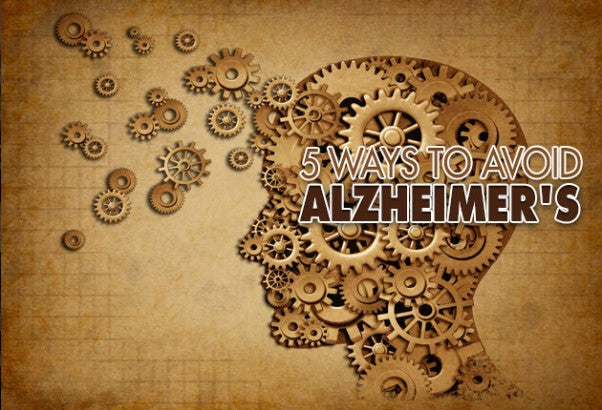Are there really ways to avoid Alzheimer's? Dr. Neal Barnard, President of the Physicians Committee for Responsible Medicine, has looked into the subject extensively. PCRM is the organization known for both sound dietary research and outrageous billboards that warn of the dangers of common Standard American Diet foods (like the hot dog billboard in Miami, FL).
What Dr. Neal Barnard Knows about Alzheimer's
Dr. Barnard has had a fair share of Alzheimer's disease in his family. Both sets of his grandparents had dementia, as did his father. In an interview with Hallelujah Acres, Dr. Barnard mentioned five ways to help reduce one's risk of suffering from Alzheimer's:
1. Avoid "bad" fats
There are other contributors to dementia, but fat seems to be number one. Saturated fat (especially from animal sources) dramatically increases the risk of Alzheimer’s disease. In 1993, Dr. Barnard says, The Chicago Health and Aging project found that the more saturated fat people ate, the higher their risk of developing Alzheimer’s disease. Trans fats, the partially hydrogenated oils, seem to have the same sort of effect.
It works like this: The more bad fat you eat and the higher your cholesterol goes, the more of these microscopic plaques you have in your brain, and they seem to be what damages the brain in Alzheimer’s disease. The good news that at some point in the middle of life you have decided to set aside the bacon and the hot dogs and the foods that are high in these bad fats, your likelihood of Alzheimer’s disease plummets.
2. Avoid aluminum and excess iron and copper
The plaque in the brain of someone who died with Alzheimer's disease contains metals; not only the infamous aluminum, but iron and copper as well. With respect to aluminum, in parts of the world where there is more aluminum in the drinking water, there is more Alzheimer’s disease; so it makes sense to minimize the amount of aluminum you’re being exposed to. The iron in the food that you eat can oxidize. You also need tiny amounts of copper in your diet to help create enzymes; but over time copper in your body corrodes just as a penny does, creating free radicals. Individuals who have a lot of iron and copper in their diets are more likely to develop dementia.
3. Refuse hormone replacement therapy
In a double blind study, women who took hormones had more dementia compared to women who took a placebo. Though surveys suggest otherwise, we believe this is because image conscious women were seeking out HRT, further suggesting that hormone replacement therapy is a problem rather than a solution.
4. Get some exercise
Exercise gets your heart pumping. In turn, you can get more oxygen and nutrients to the brain and more waste out. Researchers have clearly shown that the more your exercise, the more benefits you reap for your brain as well. In fact, age-related shrinking of the parts of the brain involved in memory can actually be reversed with exercise.
5. Practice healthy sleep habits
Sleep helps the brain to integrate memories more effectively. During the first part of the night, the brain integrates words and facts. During the second part of the night, the brain integrates emotions and physical skills like riding a bike. If you’re not getting adequate sleep, you may not remember the educational experiences you had during the day; if you’re not sleeping, you can’t integrate them and can’t remember them. That’s why people who stay up all night have trouble with their memory and emotional control. These are things they wouldn’t have if they got better sleep.
A lack of B vitamins, particularly B12, may result in a misdiagnosis of Alzheimer's, among many other diseases. Read more about B12, B6 & Folate - B Vitamin Supplements or get yours today from Hallelujah Diet.
How do you keep your memory sharp? Comment below!







